|
Finding Confidence and Healing through Inner Child and Inner Family Work
Cost: Free Join, us via Zoom, as Elizabeth welcomes Asha Lightbearer, a seasoned alchemical hypnotherapist and psychic energy healer. Asha is a CSA survivor who has been helping clients find their confidence and reclaim their lives for over two decades. Her sessions are engaging and transformative, filled with imaginative healing techniques like inner child and shadow work, persona posturing, and more. Register via Zoom https://us02web.zoom.us/meeting/register/tZUrde6upzgjGdKta0Knw89b3p2fRTUerDjO Conversations with Elizabeth is a program provided by EmpowerSurvivors, a nonprofit organization that helps survivors of childhood sexual abuse and trauma. In this interactive program, Elizabeth will introduce conversation starters and discuss issues of interest for survivors. The program is recorded and added to the EmpowerSurvivors YouTube channel. Participants can turn off the video and change their names to protect their privacy. If you would like to know more about EmpowerSurvivors, our mission, and our programs, please visit our website at https://www.empowersurvivors.net/.
0 Comments
Today we want to thank all of you that continue to support our mission of
supporting those that have been victims of childhood abuse! EmpowerSurvivors was created in 2014 by Stillwater, MN resident Elizabeth Sullivan. What started out as a peer support group meeting in a local library quickly morphed into a 501c3 nonprofit that is now able to reach survivors worldwide! Since 2014 we have visited and spoken with thousands of survivors of childhood sexual abuse, 250 prisoners of the Lino Lake Prison system, local colleges, Universities, local Rotary Clubs, businesses leaders, numerous podcasts, nonprofit organizations, MN House and Senate committees, survivor groups, survivor families, and Take Back The Night Events, and more!!! We could not do this work without all of you. Thank you to all of the members that bravely walk this healing journey with us, all of you who have " Liked" our page, our donors, fellow businesses, and past and present board members. We truly appreciate each and every one of you!!! More about the EmpowerSurvivors Organization: https://www.empowersurvivors.net/ Join us for another episode of the EmpowerSurvivors Zoom podcast:
Conversations with Elizabeth! Monday, April 10, 2023 6:00 PM Central Time 7:00 PM Eastern Time 5:00 PM Mountain Time 4:00 PM Pacific Time Must register in advance: https://us02web.zoom.us/meeting/register/tZUud-urpzwiH9Hz38R6raU4-ZMZKPb8nZ14 After registering, you will receive a confirmation email containing information about joining the meeting. This week we cover the subject of sibling childhood sexual abuse and trauma with special guests & Survivors, Amanda S., Maria Socolof, and Jane Epstein of the nonprofit 5WAVES. An estimated 80 million children worldwide have experienced sibling sexual trauma or abuse. 88% of survivors don't tell anyone till adulthood if they ever tell at all Join us as we discuss this important topic that is rarely spoken about. What is 5WAVES? 5WAVES is a not-for-profit promoting Worldwide Awareness, Voice, Education, and Support around Sibling Sexual Trauma--child sexual abuse caused by a sibling. The founders of 5WAVES are five women in five different time zones, working to break through the dark shadows of a silent epidemic. As survivors and parents, they each found themselves utterly alone for years and even decades, as they faced the effects of sibling sexual trauma (SST) on their lives and families. Sibling sexual trauma is real. It happens in all types of families. In fact, it is one of the most common forms of child sexual abuse both in the US and worldwide. https://www.5waves.org/ What is EmpowerSurvivors: EmpowerSuvivors is a survivor-led 501c3 nonprofit organization incorporating the peer support model. EmpowerSurvivors aids in reducing the silence and stigma of childhood sexual abuse. We offer individualized mentorship programs, peer-support groups, classes, and conferences. These programs help aid in the survivor recovery process, reduce isolation, provide skills to help manage lives in the community and promote health and well-being. https://www.empowersurvivors.net/ Conversations With Elizabeth is a podcast series discussing issues pertaining to childhood sexual trauma, mental health, healing, and wellness. This program is produced by EmpowerSurvivors. EmpowerSurvivors is a nonprofit that serves that supports survivors of childhood sexual abuse worldwide on their healing journeys. In this episode Elizabeth has a candid conversation with Mel Langston, PhD., LPC. who is the mother of a sexually abused child and founder of the organization, Mothers of Sexually Abused Children. About Mel: Mel Langston, Ph.D., is motivated by personal experience with child sexual abuse and is a licensed therapist in Astoria, Oregon, with over 30 years of professional experience working with mothers and sexually abused children. Mel is the author of What Do I Do Now? A Survival Guide for Mothers Of Sexually Abused Children and also the CEO of MOSAC https://www.mosac.net/ About Elizabeth: Elizabeth is the founder of EmpowerSurvivors, a nonprofit organization located in Stillwater, MN. Elizabeth is a survivor of childhood sexual abuse that now uses her own experience of abuse, healing, and education, to help others. Elizabeth's organization started in 2014 at a time when little help was afforded to survivors of this horrible crime. It is her belief that survivors deserve healing and she believes the peer support model can be very beneficial for those looking to add to their mental health team. No survivor should ever have to live in silence. Elizabeth welcomes you to join our many Facebook groups as well as the other offerings at EmpowerSurvivors. www.empowersurvivors.net/ EmpowerSurvivors is a 501(C)(3). All Rights Reserved. © 2023 Many survivors of childhood sexual trauma and abuse remain silent about their abuse. Some will never break their silence and will continue to suffer alone. Hanging on to the blame and shame that are not theirs to hold. For those that do tell, there will be survivors that are supported by family and friends and unfortunately, many survivors will not be supported. Survivors instead may be blamed, asked why they don’t just get over it or asked why they continue to let something bother them that happened decades before. As survivors, we may have pushed the memories aside or disassociated and then in midlife find ourselves suddenly being triggered and having the floodgates open up which can completely turn our lives upside down. We may at this time feel gutted, and suffer from flashbacks, intrusive thoughts, nightmares, anxiety, and more. Suddenly we may find ourselves questioning our own sanity. We may have fears that if we were to tell anyone they would know how horrible of a person we really are. We may start to believe these negative thoughts and lies we tell ourselves. We may hate ourselves so much that we spend an unbelievable amount of time punishing ourselves, hating ourselves for not stopping the abuse, for struggling in healing, for not “ having it together”, drowning ourselves in alcohol and drugs, and feeling shame, dirty and unworthy. When healing from childhood sexual trauma and abuse we need to go back and challenge the negative thought patterns that we may have stemming from abuse. Abuse and perpetrators lie and unfortunately, we can believe these lies. In healing, we must learn to break our silences, not an easy task. To discuss the things we have experienced and have a trusted person reflect back the truth that we may have lost. We must learn that childhood sexual abuse is a trauma and injury that can not be forgotten but rather needs to be processed. We must learn that we are loveable and deserving of much and we must learn how to love ourselves, and all our parts, and see our own worth that we sometimes may fail to see. We must reach out to the inner child that suffered so much and had no one, look at them, hold them, love them and say they did not deserve the crimes done to them. The adult part of us will need to care for this child and teach them that they are no longer alone, that we ourselves are our own heroes and we will be the ones to save this child that was not protected. Healing is hard but not unattainable. Healing may look different from survivor to survivor so we must trust the process and not compare. Not beating ourselves up for not healing quickly enough and learning a new way of thinking and operating. Undoing the trauma both in mind and body takes time. We may not feel whole or connected. Healing may look like taking 3 steps forward and six steps back and then doing it all over again. We must not get discouraged but rather accept ourselves for where we are at. At first, the memories may be constant, and we may think we will never return to normal but what is normal? For us, normal after-abuse may mean living in a state of hypervigilance, anxiety, distortions, disassociation, and separated identities. Healing means giving ourselves grace, the permission to ask questions, to learn, to gather support, and not have all the answers. Healing means cutting ourselves some slack for not knowing the things that we believe we should. Healing means accepting ourselves, asking for help, and developing a love for ourselves that may seem selfish. Healing takes place when we incorporate both the mind and body. What our minds don’t remember our bodies do so healing means healing the whole person. We can do this by processing our trauma and learning to appreciate our body's fat rolls and all. Healing is learning to feel safe again in our own skin, taking care of ourselves, and finding ways to feel fully present in our mind, body, and soul. Trauma therapy, peer group meetings, good nutrition, exercise, meditation, yoga, and learning to be a part of a community can help with this. If you are just beginning your healing journey please remember you are not alone. It may feel like we are but there are many of us out here. You will not stay where you are today if you put in the work. Again, this path is not easy. You will always remember the abuse but as you find healing and do the work you will work toward acceptance, and healing. The pain from abuse will lessen. You may find yourself looking back and saying wow, I’m not where I was 3 weeks ago, 6 months ago, a year ago, or five years ago. You will begin to find joy in things again, find authenticity, learn to be transparent, and care for yourself. You may find yourself expanding, growing, and seeing the pleasures in life again. If you are just beginning your healing or have been on this journey for years you matter. Your story matters. You can find healing, it will not be overnight but there can be improvements, new opportunities, and understanding. Someday you may even find yourself looking in the mirror and realizing that all along you have been strong, you have worth, and the fact that the child you went through so much and are still here to talk about it took grit, took courage, perseverance, and that at the end of the day when this could have crushed you completely, you are looking at a person that truly survived and that's worth celebrating. Keep up the good work. You can do this. You survived something that not all survive. You are here walking this journey one day at a time and we are all here rooting for you. You will become your own hero and in the end, you will see your inner child just as I do. A magnificent individual that went through hell and lived to tell about it. You are your own hero, a special gift, and worthy of much. Elizabeth Sullivan Founder of EmpowerSurvivors www.EmpowerSurvivors.net EmpowerSurvivors is a 501c3 nonprofit organization offerring peer support for those
who experienced childhood sexual trauma and abuse. Survivors helping survivors. This is what we do! Staying Sane During The Holidays EmpowerSurvivors is a 501(C)(3). All Rights Reserved. © 2022 www.EmpowerSurvivors.net ****Trigger Warning ***** Holidays can be a hard time for survivors of childhood sexual trauma and abuse. For many, it may mean reminders of past childhood abuse or knowing that the person that perpetrated them will be gathered alongside family members. This may leave you feeling a sense of loss and thoughts of why, why would my family still include the person that hurt me, took my innocence, and caused so much pain. Many survivors feel forced to attend holiday events simply because the people asking are “family”. Survivors may be asked by family members why they are still holding on to something that happened years ago or guilt-tripped and told “ you need to forgive, let it go” or other statements that only make the survivor feel betrayed, abandoned, unloved, and unsupported. As survivors, we know that sexual trauma and abuse are not something you just “ get over” but rather something that needs to be processed in a loving and supportive environment. Each survivor is unique so healing can look different depending on the situation. All survivors deserve support and that includes everyone reading this. How To Stay Sane: 1) Love yourself Give yourself the grace and love that you truly deserve. Go easy on yourself and know that whatever you are feeling is okay. You matter and so do your feelings and experiences. Take time to rest, buy yourself a present, and invest in yourself. 2) Surround yourself with positive and healthy supporters Building a strong support system around yourself is very important. This could include trauma therapists, fellow survivors, peer groups, or those in your life that have supported you on your healing journey. Have a code word for your partner that gives your partner the notice that it may be time to leave a situation or get together that is toxic. 3) Get enough rest, drink water, and watch what you are eating. Sleep is an important factor in life. Without adequate rest, our systems tend to break down. Getting enough sleep can help you handle the stresses of the holidays easier. Stress wears us thin, so healthy eating habits and drinking water can help us regulate our systems and stay healthy. Good nutrition can lead to less depression and an overall healthier lifestyle. 4) Learn or enforce healthy boundaries Think of boundaries as your property line. Boundaries help you to stay safe, is a form of self-care, create realistic expectations, and create safety. If someone crosses your boundary let them know what your expectations are, how they broke your boundaries, and help you advocate for yourself. 5) Know you are not obligated to attend functions simply because they're family. How many times have you been to a gathering that you felt obligated to attend simply because of “ family”? Give yourself permission to decline invitations where your perpetrator is attending or those that have not been supportive. 6) Learn that saying No is okay Many people struggle with saying, "No." Many people have a knee-jerk reaction to say “yes” when they're asked to do someone a favor. Keep in mind, you are never required to say "Yes." It's actually okay to say "No" sometimes. Accept this as you prepare to say "No" to someone. This will help you say "No" with ease. When saying “yes” make sure you are not saying no to yourself. 7) Fight the negative messages Watch your stinkin thinkin! So many times we have negative messages telling ourselves we are being selfish, not worthy, not deserving of love, etc. These are all lies and many times have been put there by our perpetrators or those in our family unit or well-intended friends. Every time you get a negative thought, notice it but kick it out quickly with a positive affirmation. Instead of saying “I am not worthy” replace it with “ I am fearfully and wonderfully made and worthy of much”. Become the person you needed as a child. 8) Create New Traditions Sometimes the abuse we suffered at the hands of others has found us all alone. Creating new traditions can help bring joy back into your life. Have your own party, celebration, or holiday tradition that is only attended by healthy individuals and those that support your healing journey. Volunteer at a food shelf, local school, or soup kitchen, visit the elderly in a nursing home, aid in others' healing, and get creative. You have the power within you to begin new traditions. No matter your situation please know you are not alone, there are many of us out here that celebrate you and your healing. If you are in need of more support please feel free to join one of our Facebook groups that support those that were sexually traumatized and abused in childhood. Together we can find healing and once again find joy. If in immediate danger please call 911 or your local crisis center. Written by: Elizabeth Sullivan, Founder & CEO of the EmpowerSurvivors 501c3 nonprofit. EmpowerSurvivors wishes you and your families much peace and love during this holiday season.
If you would like to support EmpowerSurvivors, the survivors we support, our programs, groups, and classes please consider a donation this holiday season. We look forward to serving you in 2023 and will be announcing new classes and groups soon! Donate today through PayPal, through AmazonSmiles, Facebook fundraisers, or by simply sending a check. We appreciate all who donated in 2022!! Without YOU we could not serve those we hold so dearly. Donations Through Paypal: Select a one-time donation or support us monthly for more impact! https://www.paypal.com/biz/fund?id=MRU3VP4L3KSFU AmazonSmiles Shop at https://smile.amazon.com/ and Amazon will donate 0.5% of eligible purchases to EmpowerSurvivors nonprofit organization—no fees, no extra cost. Simply choose EmpowerSurvivors as your charity! Facebook Fundraisers Go to https://www.facebook.com/EmpowerSurvivors/fundraisers and click on raise money. 100% of the donations will go to supporting EmpowerSurvivors! Mail Check To: EmpowerSurvivors 815 Oak Street West Stillwater, MN 55082 In relation to trauma, a trigger is something that calls to mind a previous traumatic situation and may provoke a flashback of the event. Therapists suggest that triggers can vary person to person, and are dependent on an individual’s personal, and often private, experiences. It may be hard to predict what may be a trigger for you or a loved one, however, the more attention you pay to identifying triggers, the easier it may become to predict, control, or manage their effects.
Types of triggersTriggers can be divided into different categories, including those based on our senses. Common categories of triggers may include:
Managing TriggersThere are various approaches to managing triggers. Although everyone’s triggers may be different, there are common tips that can be used to deal with them in a healthy manner. These include, but are not limited to:
By Evey Krammer-Carlson I make a conscious effort to be careful about what I read and listen to on the news. It’s a tricky line to walk sometimes because I’m inherently curious and interested in what is happening in current events around the world. I don’t want to live in a bubble. I want to know what’s happening, I want to be able to critically think about things so I can form my own opinions and have thoughtful conversations. When my symptoms were at their worst, and I was going through the throes of processing my memories, my therapist had me follow the “puppy and kitten rule,” meaning I could watch anything as long as it included cute puppies and kittens. That “rule” helped me minimize being triggered at a time when most of my days were spent experiencing flashbacks, anxiety, panic, and fear. I stayed away from intense news and was mindful of what I watched on tv and what movies I saw. Most of the time, I watched lots of comedy. Admittedly, there were times when I broke the rule. I sometimes sought out programs with violence that in some way mirrored my own abuse. Or I would pay attention to sensationalized cases in the media that were hard to avoid. Inevitably I would get triggered. As I began to manage my symptoms and felt some sense of safety the puppy/kitten rule was lifted. Because I had been so careful about what I ingested from media outlets for so long, I developed an avoidance for watching or seeking out certain information because I knew it may be triggering. Recently, there was a news story that I had done my best to avoid. When it first came out, people were outraged, and then the news cycle changed. I understand why that happens. There is so much out there every day, and each event is shocking and sad, and sometimes incomprehensible. But because my trauma is sort-of similar to the aforementioned news story, I was on high alert when I scrolled past it. I had a definite curiosity about the details but hadn’t read anything besides the headlines. Until the other day! The other day the headline changed and I knew that the very thing I feared when I first heard the story did, in fact, come true. I knew this person would never be convicted. I felt sick that even with awareness, this kind of trafficking still goes on, and in my mind, will probably continue to exist. Then I got triggered. I’m not used to those kinds of triggers any longer. There is plenty for me to navigate in my daily life, and anniversary times of the year, and I thought I was far enough along in my healing journey that I would be okay. But PTSD doesn’t operate that way. It doesn’t care that I was just reading an article, and it doesn’t care that this person had absolutely nothing to do with me. I had never heard of him. PTSD simply understands that my sense of safety and trust is altered because of the trauma I experienced, and my brain and body will go into the memory and protection mode automatically. After reading the article, I could tell that something was awry in my body/mind/spirit. I could tell things were stirred up in a way that I could spiral down the cycle of panic, fear, and shame. I closed the computer, went to yoga, had lunch with a friend, and remembered that today is a day when I’m fighting the tiger. Any shame over being triggered dissipated as I repeated my metaphorical mantra of support to myself. Seeing things written, or in movies, tv, or media can bring a sort of validation. A sense of see? I’m not making this up! When you are a trauma survivor you look for validation. My trauma seems so “out of the ordinary” that it’s extremely rare that I felt validation. But, my job on my healing journey is knowing that my truth is validation enough. I suspect there will be other times when I get triggered by the news. The intensity of my response will probably vary depending on what the triggers are, the time of year, and the present stressors in my life. I know what to do when the skeleton hands of the past pull at me, and I’m confident that I’ll remember that I will fight the tiger and win. Dissociation is an experience where your attention and emotions are disconnected from the present moment.It’s like you’re here, but your mind and emotions are somewhere else. This is a general term and experience. I talked in a previous video about depersonalization and derealization. Those are specific kinds of dissociative experiences. With depersonalization you feel detached or disconnected from yourself so you may feel like you’re observing yourself. With derealization, you feel disconnected from your environment. You may feel like the room you’re in isn’t real or that you’re in a different place than you really are. An example of this is experiencing a car accident where you smelled the burning rubber of your tires. Then whenever you are riding in a car you think you smell the rubber again. That is an example of a dissociative experience you can have after the trauma experience. But sometimes you can dissociate during a traumatic event. This can be your mind’s way of protecting you from a situation where there is no escape. This is pretty common during physical or sexual trauma when you can’t get away. In order to endure the assault, you brain turns down your response to pain and numbs your emotional response. In your mind you may go to another place such that it feels like it’s really not happening to you. During the traumatic experience, that kind of reaction helps you survive it. But then sometimes dissociation becomes a built in defense mechanism that you employ in other situations that are unrelated to trauma. For example, you can be triggered to feel disconnected or numb in response to something that reminded you of the trauma, even if you weren’t consciously aware of the trigger. You can just feel empty all the time and not know why. Smells and sounds can remind you of the trauma in a way that your body responds with anxiety and fear, but you don’t always put it together why you’re feeling anxious. It’s like the fragmented memories can come flooding back in response to sights, sounds and touch. Anxiety is another trigger that can send you into a dissociative state. So let’s say you are under a lot of stress at work. You can have trouble relating to people at work because with the added stress, you start zoning out at work. Or you start withdrawing from people because you feel like you’re a stranger and your coworkers make you feel uncomfortable. What can you do about this? The best treatments are trauma-focused cognitive behavior therapy, prolonged exposure, and eye movement desensitization and reprocessing. One self-help approach is to use grounding techniques. Grounding techniques bring your awareness back to the present moment where you ARE safe. It’s like getting your bearing and refocusing. You can use sensory grounding or cognitive grounding. Sensory grounding uses the five senses to bring you back to the present moment and cognitive grounding uses your thoughts to remind yourself that you ARE in a safe place. Sensory grounding exercises: The 5-4-3-2-1 sensory exercise. Use a grounding smell that can bring your attention back to the present. Carry a sensory grounding object in your pocket. Splash cold water on your face and neck. Cognitive grounding exercises: Show yourself that you’re safe. Orient yourself to time and place. Repeat an inspiring quote or saying that’s comforting to you. Say coping statements like I can handle this, my situation is so much better now, these feelings with pass, etc. Want to know more about mental health and self-improvement? On this channel I discuss topics such as bipolar disorder, major depression, anxiety disorders, attention deficit disorder (ADHD), relationships and personal development/self-improvement. I upload weekly. If you don’t want to miss a video, click here to subscribe. https://goo.gl/DFfT33 Disclaimer: All of the information on this channel is for educational purposes and not intended to be specific/personal medical advice from me to you. Watching the videos or getting answers to comments/question, does not establish a doctor-patient relationship. If you have your own doctor, perhaps these videos can help prepare you for your discussion with your doctor. "Today we are going to talk about the 5 signs of dissociation because it’s more common than most people think. Research shows us that over 50% of people will have at least one dissociative episode in their lifetime, so we should all be a little more informed about what it is and what it isn’t. And all the more reason to share this video! 1. Memory loss 2. Feeling like you are watching yourself do something & you don’t have any control over it 3. Feeling lightheaded 4. Not feeling pain 5. Feeling like we don’t know who we are Dissociation: why it happens and what we can do about it " |
Archives
May 2024
Categories
All
|

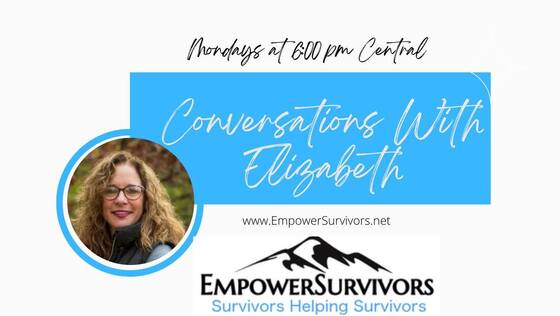
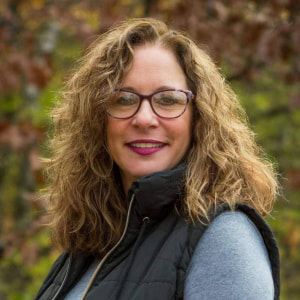


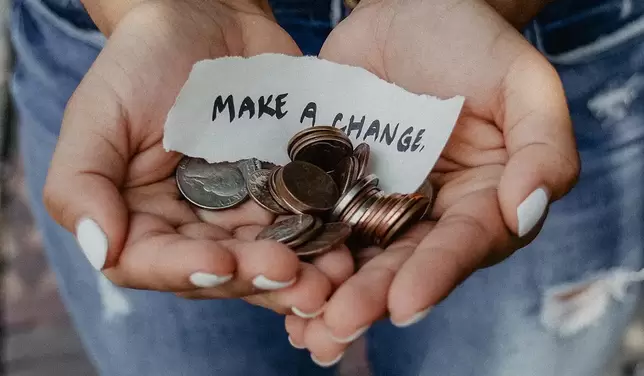
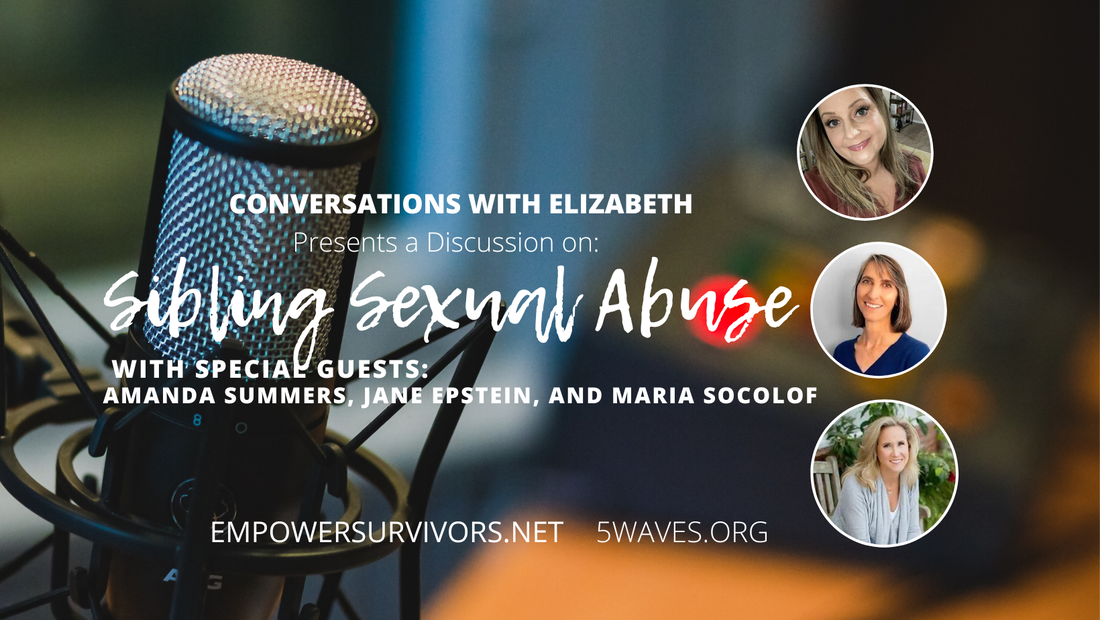
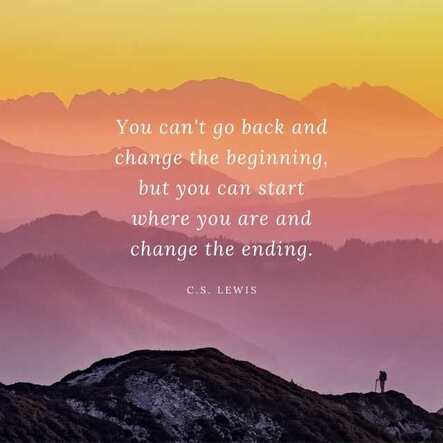
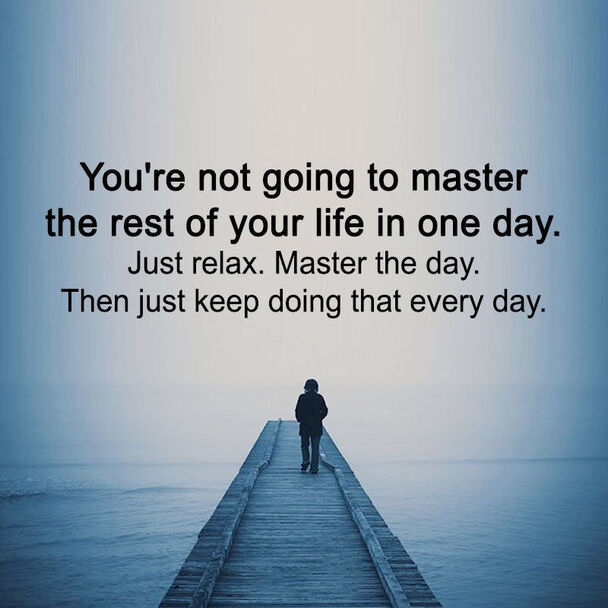
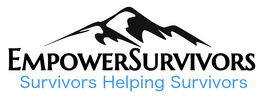


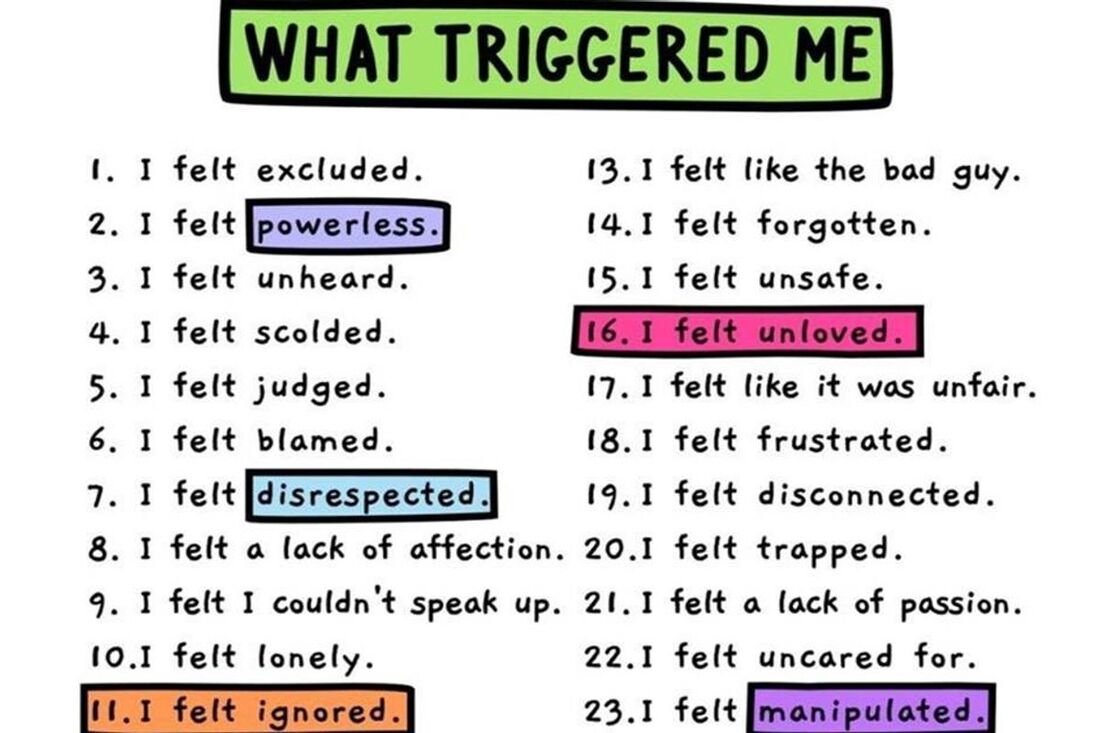
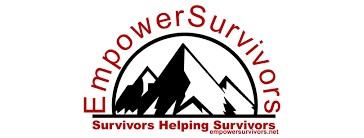

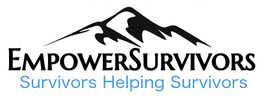
 RSS Feed
RSS Feed